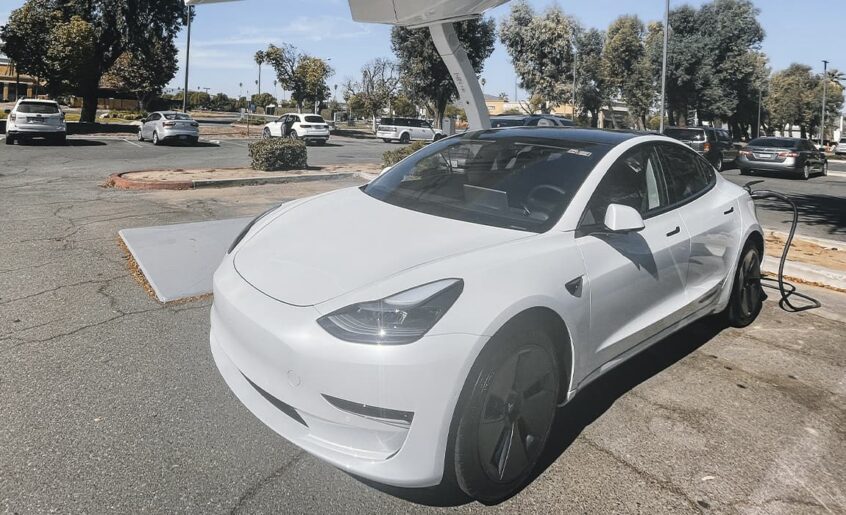An electric car is a vehicle (vehicle) that is electrically powered. It is the most ordinary car, but instead of the internal combustion engine it has an electric drive, which is powered by a battery.
The principle of the electric car is that electricity from the battery feeds the electric motor, which in turn rotates the wheels. To control the speed the car is equipped with a gas pedal.
The features of this type of transport are as follows:
The electric motor is capable of more revolutions, up to 12,000 rpm. This means that the car does not need a multi-stage gearbox, and accordingly the gearbox. However, some electric cars are still equipped with automatic gearboxes.
All of the torque of the electric motor is available from zero rpm. This means that the moment the accelerator pedal is pressed, the full power of the motor is transmitted to the wheels.
The electric motor does not need frequent regular maintenance (changing oil, filters and so on), as it has a minimum of rubbing parts.
It is worth noting that commercial electric vehicles have been in use in various countries for quite some time. These include electric trucks, as well as warehouse machines such as forklifts, stackers and so on. And their benefits have already been proven in practice.
The history of electric cars dates back to the 1830s. And those days they were more common than other forms of transport. The first electric car was capable of accelerating up to 4 km/h.
However, technology was very limited at the time. In particular, there was a lack of rechargeable batteries that were small and of sufficient capacity. The first prototype of the modern battery appeared only in 1865, after which in 1878 the battery was improved to the form, which with slight modifications survives to this day.
Electric cars lost their relevance with the invention of the internal combustion engine, which became the best alternative to the electric drive due to a number of features:
Cheap fuel (gasoline, diesel, and so on);
limited electric motor and battery technology.
It is these factors that have determined the further development of the automotive industry over the next few decades.
A new wave of electric cars emerged during the fuel crisis in the 1970s and was amplified by the advent of smaller, higher-capacity batteries. In general, the history of electric car development has several stages, each of which gave the world unique models.
